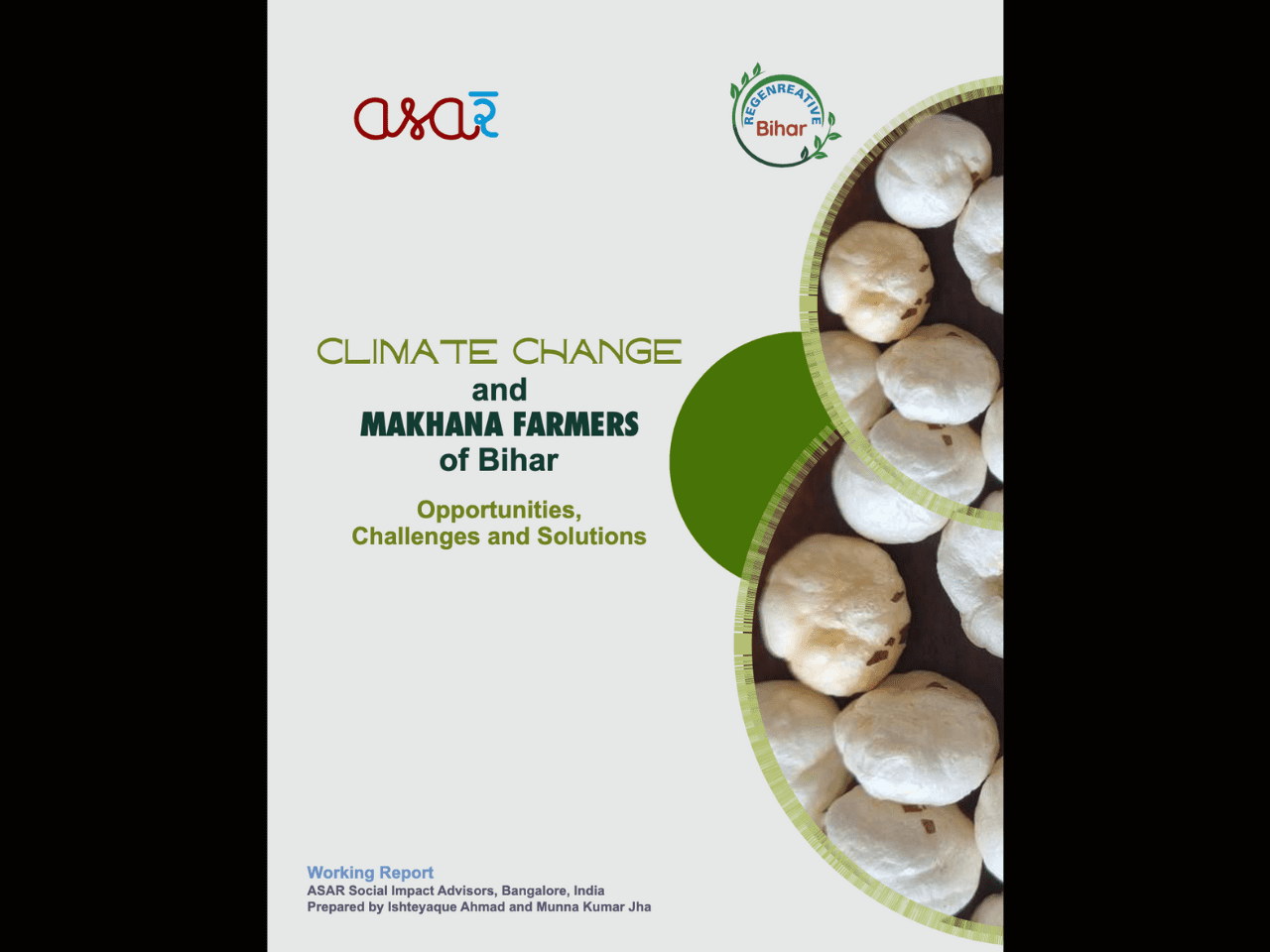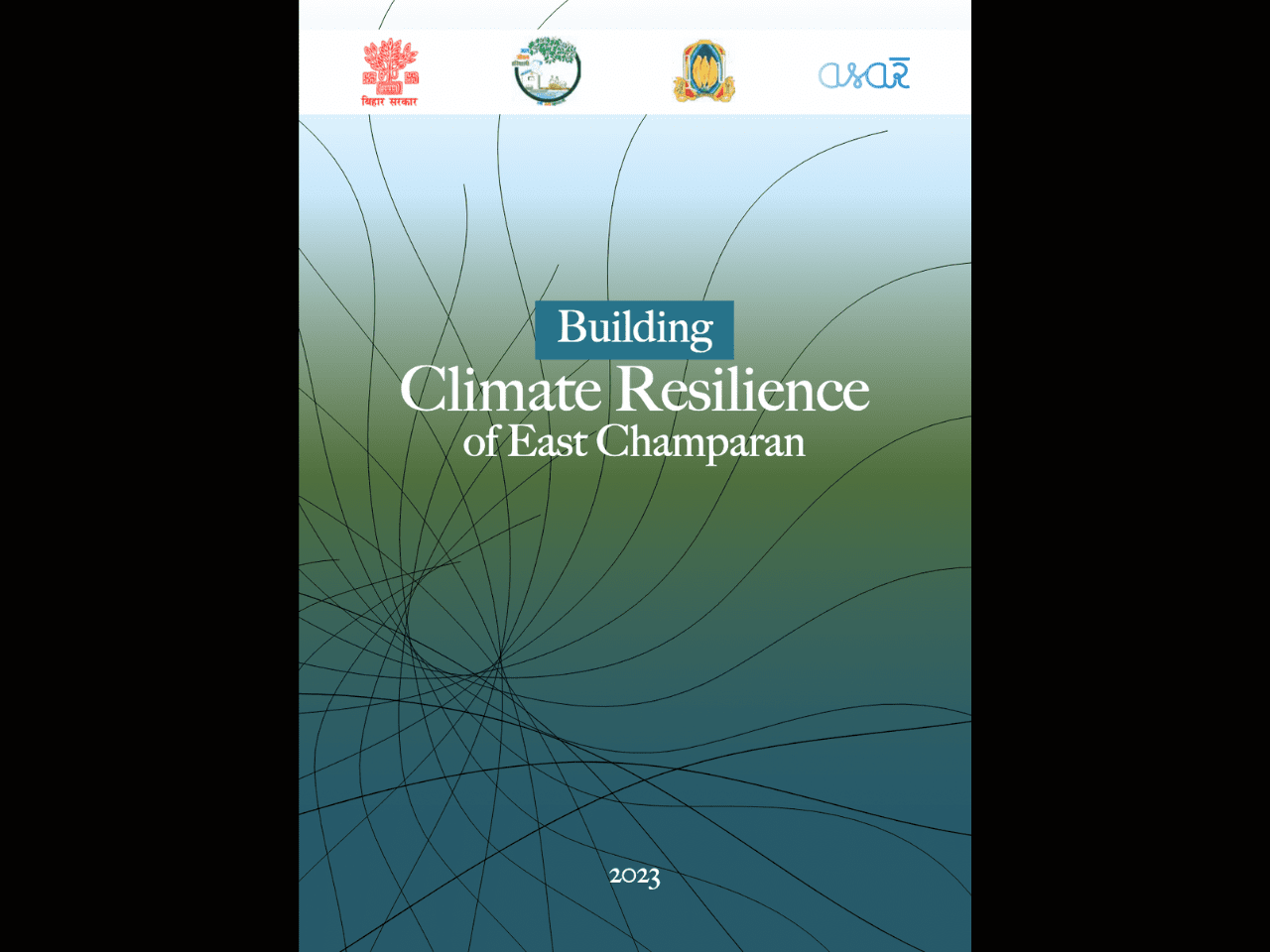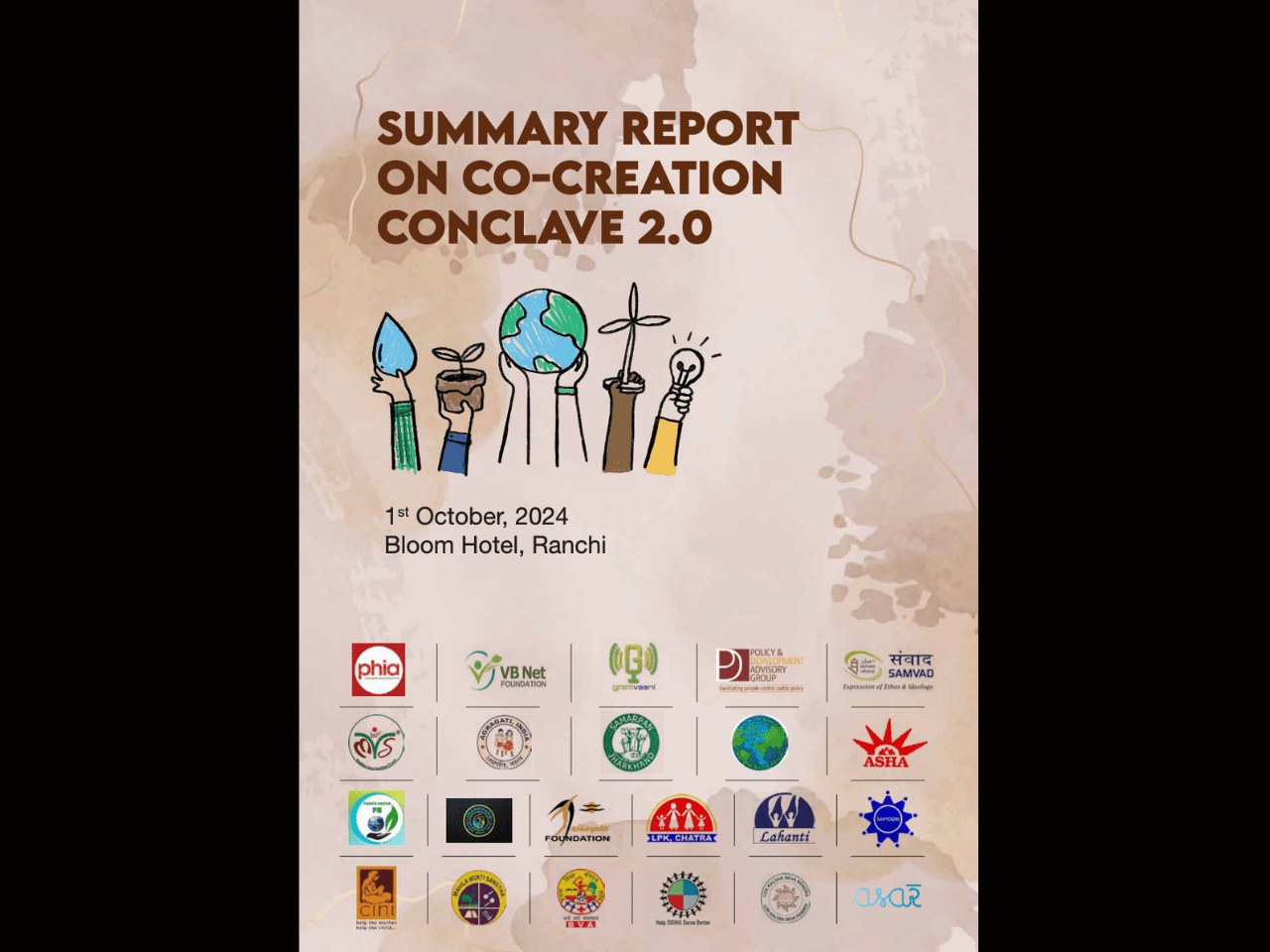Makhana, or Fox Nut, though cultivated by a limited number of farmers in Bihar, has gained national and global recognition for its nutritional value and health benefits. It is increasingly being seen as a superfood, with growing demand and rising prices. However, the changing climate—especially long spells of hot and dry weather – has started to pose serious challenges for traditional and Chaur farmers engaged in its cultivation.
To understand these challenges better, Asar and Regenerative Bihar have collaborated on a study involving makhana producers, subject experts, and other key stakeholders across the state. The report documents their experiences, identifies the major issues they face, and presents recommendations to make makhana cultivation more climate-resilient and economically viable







